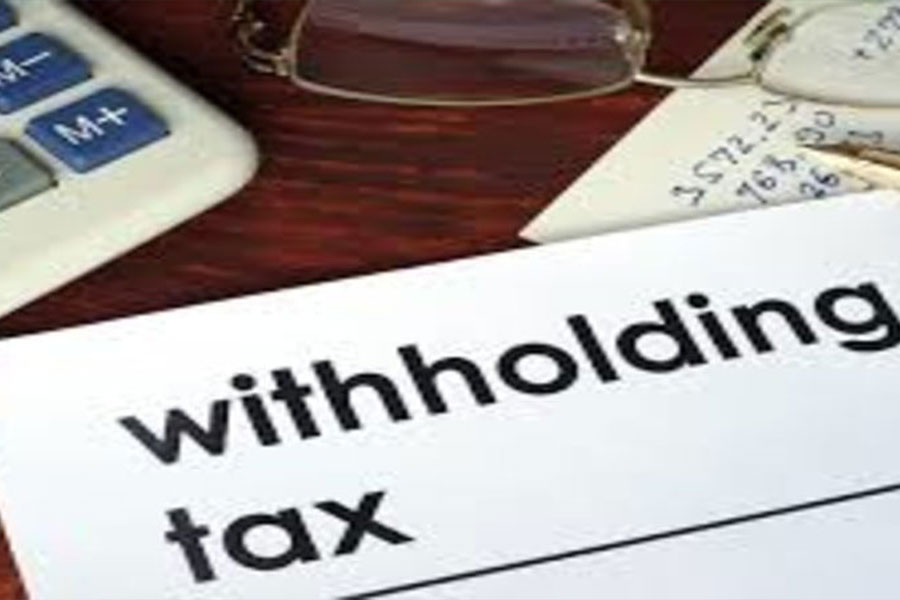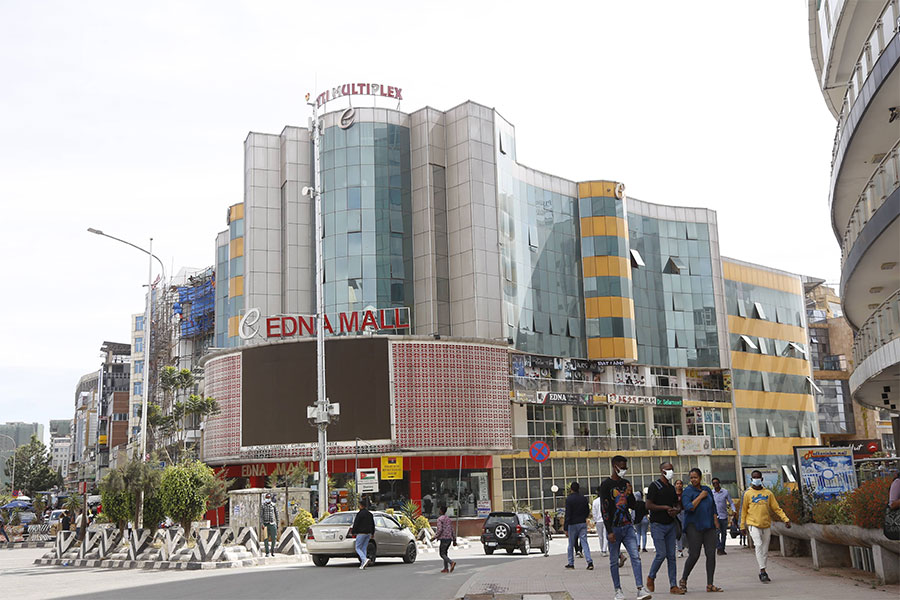
Fortune News | Oct 26,2025
A proposed excise tax stamp system draws controversy amongst industry leaders in the alcohol, tobacco, beer brewery, and water bottling sectors. While they are wary of added costs, information leaks, and disruptions to production, officials at the Ministry of Finance see it as a weapon against counterfeiting and a path to higher tax revenue. Last week, they gathered at the Ministry's headquarters on King George VI St for public discussion.
At the heart of the discourse lie concerns over escalated levies, hidden costs, and the imperative of transparency. Wasihun Abate, a tax policy advisor at the Ministry, stressed the need to implement tracking and tracing mechanisms for the four industries that have been proliferated with high-risk products.
"We must have unequivocal evidence of excise tax compliance," he said.
Wasihun foresees a security infrastructure as reliable as marks on bank notes to eliminate any possibility of counterfeit stamp manufacturing and streamlined excise tax collection.
"Excise stamps have proven their mettle," he said.
Tax stamps, tracing their lineage over 350 years across 80 nations, stand as a testament to the enduring struggle against illicit trade. From oversised parchments in Spain to their modern incarnation as adhesive labels reminiscent of postage stamps, their efficacy has varied. While nations like Kenya and Morocco wield them as potent weapons against illicit commerce, others, like Denmark, have bid them adieu in recent times.
However, the three-year-old excise tax decree, targeting luxury items and those detrimental to public health, has faltered in its quest for fiscal buoyancy. Last year, it fell short by two billion Birr to 27.7 billion Br, a reminder of its limitations in boosting the coffers.
According to Tewedaj Mohammed, head of legal affairs at the Ministry, reducing illicit manufacturing, smuggling and counterfeits goes in line with modernising the tax management system.
"Tax revenue is below the plan," he said.
During the fervent debate, the dissenting voices of industry stalwarts echoed, with practical challenges and apprehensions in their respective sectors.
Yetnayet Beyene, legal director of Dashen Brewery, voiced concerns over the looming spectre of increased costs. Dashen has an installed capacity of around three million hectoliters between its two plants in Gonder and Debre Birhan, in Amhara Regional State. Her apprehensions continue with the uncertainty of reporting requirements in the event of production halts, fearing the unintended revelation of sensitive business information to competitors.
"Competition is fierce in our industry," she said.
Her sentiments find resonance across the sector, with Mekes Sahilemariam, representing Heineken Brewer Factory, echoing concerns over the potential monopolistic control by a single stamp supplier.
"Multiple players must be involved," she said, underlining the imperative of seamless integration into the pace of production.
There was a contrasting view from the tobacco industry, besieged by rampant contraband. They greeted the proposed stamps with guarded optimism. Yayehyirad Abate, head of Corporate Affairs at National Tobacco Enterprise, anticipates a welcome reduction in illicit trade, albeit with reservations about the swift implementation timeline. He queries if the cost implications of digital stamps were considered while advocating for a year preparation period.
Meanwhile, the bottled water sector, long at odds with the excise tax, finds itself thrust into further turmoil. Bottled water manufacturers who have objected to the excise tax ever since it was initially levied on them were predictably upset over what they perceive as a rushed impetus to bring about stamps.
Getnet Belay, chairperson for the Water Bottlers Association, was aghast at how stamp requirements were introduced when the initial issue over the legitimacy of the excise tax on water was not satisfactorily resolved.
"It's all happening too fast," he said.
He argued that the water bottling industry was already struggling to keep up with skyrocketing costs to be hit with an additional burden on its finances.
"It should be left out for the time being," he said .
Implementation guides were put forth by the Ministry officials. Mulay Weldu, tax policy director at the Ministry, attempted to quell the concerns by stating that companies would be required to pay for the stamp supplier in Birr and that a non-disclosure agreement would be signed to hide business secrets. Mulay warns products marketed without a stamp will be illegal. He expects a commendable uptick in excise tax contributions to the GDP, aligning with the federal government's vision of elevating the tax-to-GDP ratio to 18.2pc within four years.
"Change is imperative," he said.
Officials plan to solicit international bids once the directive receives the nod of approval. With 20 companies expressing keen interest in the preliminary stages, Mulay hints at a rigorous vetting process to ensure competence and integrity.
Winning companies must have data recording and processing capabilities, allowing the products to be marked with unique codes that can verify their authenticity and destination. Products will be stamped after the manufacturing process is completed, and imported items will be tagged at customs inspection sites.
Factories are expected to buy surveillance cameras for remote inspection by authorities, a stamp registry, and an authenticator with the Ministry of Revenues mandated to oversee and regulate the process. New products must be announced 60 days before being added to the production line.
Temesgen Takele, excise tax liability and audit services coordinator at the Ministry, capacity-building programs have been launched, and staff have are being trained.
"We aim for consumer protection apart from tax revenues," he told Fortune.
Tax law experts such as Yohannes Woldegebriel said the potential to regulate the presence of counterfeit products in the market demands a careful selection process of the supplier company and the technology to encourage compliance, making sure that it will not reveal sensitive business information to outsiders and among competitors.
"A rigorous selection process is important," he told Fortune.
According to Yohannes, boosting the regulator's capacity helps instil effective monitoring and enforcement in an institution. He recommends attaining policy objectives at low costs.
PUBLISHED ON
Apr 13,2024 [ VOL
25 , NO
1250]

Fortune News | Oct 26,2025

Commentaries | May 15,2021

Covid-19 | Feb 27,2021

Fortune News | Apr 12,2020

Commentaries | Sep 20,2025

Radar | Jan 31,2021

Viewpoints | Nov 11,2023

Fortune News | Feb 12,2022

Fortune News | Mar 26,2022

Commentaries | Nov 19,2022

Dec 22 , 2024 . By TIZITA SHEWAFERAW
Charged with transforming colossal state-owned enterprises into modern and competitiv...

Aug 18 , 2024 . By AKSAH ITALO
Although predictable Yonas Zerihun's job in the ride-hailing service is not immune to...

Jul 28 , 2024 . By TIZITA SHEWAFERAW
Unhabitual, perhaps too many, Samuel Gebreyohannes, 38, used to occasionally enjoy a couple of beers at breakfast. However, he recently swit...

Jul 13 , 2024 . By AKSAH ITALO
Investors who rely on tractors, trucks, and field vehicles for commuting, transporting commodities, and f...

Oct 25 , 2025
The regulatory machinery is on overdrive. In only two years, no fewer than 35 new pro...

Oct 18 , 2025
The political establishment, notably the ruling party and its top brass, has become p...

Oct 11 , 2025
Ladislas Farago, a roving Associated Press (AP) correspondent, arrived in Ethiopia in...

Oct 4 , 2025
Eyob Tekalegn (PhD) had been in the Governor's chair for only weeks when, on Septembe...